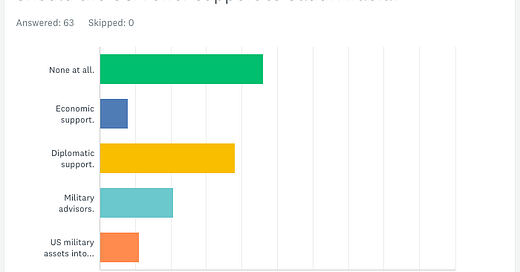Survey first. Talk later.
I didn’t know about the attacks on Saudi Arabia until Sunday evening a day and a half after the fact. So when my friends were talking…
I didn’t know about the attacks on Saudi Arabia until Sunday evening a day and a half after the fact. So when my friends were talking about Houthis, it sounded to me that this was some kind of awful candy. I didn’t realize Houthis are a militia group in the Yemeni conflict. So I came, finally, to Facebook to weigh in on the subject.
It wasn’t my thread, …
Keep reading with a 7-day free trial
Subscribe to Stoic Observations to keep reading this post and get 7 days of free access to the full post archives.




